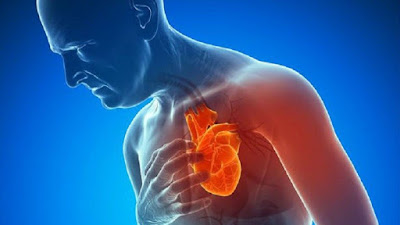10 signs you have a thyroid problem and 10 things you can do about it
Thyroid problem is something we encounter often nowadays. Almost 25 million Americans are suffering from thyroid problems and unfortunately half of them aren’t even aware of that, because the symptoms aren’t that unusual for almost every person. Hypothyroidism is a condition which happens as a result of an under-active thyroid and is responsible for 90% of the cases of thyroid problems.
The thyroid is a gland which is located on the front of the neck and is responsible for producing most hormones in the body. Doctors claim that it’s related to everything in our body, so if you have a thyroid problem and your thyroid isn’t functioning properly, your body won’t as well.
Here we’re presenting you 10 signs of hypothyroidism:
There is a special connection between the pituitary gland, the thyroid and the hypothalamus which affects and manages the levels of thyroid hormone in the body. The hypothalamic thyrotropin – discharging hormone (TRH) empowers the pituitary thyrotropin (TSH) union and emission. TSH stimulates the creation of T4 and T3 hormone in the thyroid. When there’s enough T4 in the body, it signals the TRH and TSH that the levels are sufficient and no more is required.
Numerous studies claim that T4 accounts for 85% of the hormones produced by the gland. After the creation of T4, some of it is transformed to T3 which is the dynamic type of thyroid hormone. The T3 is then transformed to Free or Reverse T3. The Free T3 hormone is what truly matters because this hormone keeps you warm, regulates your digestion, stimulates proper bowel movement and is responsible for your personality.
The most common type of hypothyroidism is called Hashimoto’s syndrome. The condition causes the body to attack itself by attacking your organs and tissues.
If you want to know if you’re suffering from a thyroid problem, here are some tests that you should take:
Here we’re presenting you 10 signs of hypothyroidism:
- Fatigue even after 8-10 hours of sleep;
- Unexplained weight gain;
- Emotional episodes, anxiety and depression;
- Hormonal imbalance;
- Muscle pain, joint pain, carpal tunnel syndrome, tendonitis;
- Cold hands or feet;
- Dry and broken skin, brittle nails and hair;
- Constipation;
- Mind fog, poor concentration, poor memory;
- Neck swelling and hoarse voice.
There is a special connection between the pituitary gland, the thyroid and the hypothalamus which affects and manages the levels of thyroid hormone in the body. The hypothalamic thyrotropin – discharging hormone (TRH) empowers the pituitary thyrotropin (TSH) union and emission. TSH stimulates the creation of T4 and T3 hormone in the thyroid. When there’s enough T4 in the body, it signals the TRH and TSH that the levels are sufficient and no more is required.
Numerous studies claim that T4 accounts for 85% of the hormones produced by the gland. After the creation of T4, some of it is transformed to T3 which is the dynamic type of thyroid hormone. The T3 is then transformed to Free or Reverse T3. The Free T3 hormone is what truly matters because this hormone keeps you warm, regulates your digestion, stimulates proper bowel movement and is responsible for your personality.
The most common type of hypothyroidism is called Hashimoto’s syndrome. The condition causes the body to attack itself by attacking your organs and tissues.
If you want to know if you’re suffering from a thyroid problem, here are some tests that you should take:
- TSH
- Free T4
- Free T3
- Reverse T3
- Thyroid Peroxidase Antibodies (TPOAb)
- Thyroglobulin Antibodies (TgAb)
- Eat a gluten-free diet, especially if you’re suffering from Hashimoto’s;
- Take a high-quality multivitamin supplement which are abundant in zinc, vitamin B and D, selenium and iron;
- Take tyrosine and iodine supplements to make sure T4 converts to T3;
- Keep calm and manage your stress levels with yoga and other meditation techniques. You must consume adaptogenic herbs as well boost your adrenal glands and your thyroid as well;
- Try to get 8-10 hours of sleep every night;
- Replace any amalgam fillings in your teeth;
- Add cruciferous vegetables in your diet;
- Avoid your exposure to bromide, chlorine and fluoride;
- Keep your gut healthy because you need to have a proper working digestive framework for your wellbeing;
- Make sure you take at least one of the tests to make sure you don’t have any thyroid problem.



